THE GASOLINE THIEVES is an arrhythmia inducing narrative film inspired by the people of Irapauto, directed by Edgar Nito, a native of the city that will leave your emotions drained. I had the pleasure of speaking with Edgar about his debut feature that has captured the hearts of many at this year’s Tribeca Film Festival.
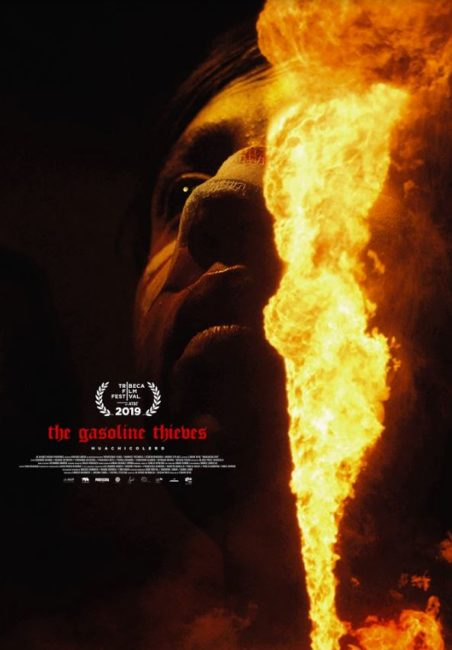
HUACHICOLERO, or THE GASOLINE THIEVES, is your first full-length feature film premiere. Tell us a bit about your journey to get here and your background.
Edgar Nito: First of all, thank you so much for time and for your interest in the movie.
This is my first feature film. Before this, I got around 4 or 5 short films that I made, principally in film school. AND I’LL COME BACK was the first one I made, which was at Sitges and some other important festivals. So it caught the attention of some people. It opened a lot of doors for me.
Since that short film, some colleagues came to me and invited me to this horror anthology called MÉXICO BÁRBARO. And then I participated with another short film that is called JARAL DE BERRIOS, it’s a paranormal Western. And of course, MÉXICO BÁRBARO at the end went really well. Meanwhile, I was finishing my thesis short film called SAN JOSE’S MASSACRE. It’s like a mix of a true event but interpreted through fantasy.
So more inspired by?
EN: Inspired by true events, yeah. A bunch of sicarios ask for an old man’s land in Mexico and he just defends his place by himself with a hunting gun. So we make a lot of like corridos, which is a music genre that talks about violence and valiant people.
We say this short is like a visual corrido of this guy. So mostly these three short films are my trajectory and I have the opportunity to participate with Vice doing two little short films for Dia de los Muertos and now we get here. And I said like “man I need to do another project and not to focus like in my short films in like the camera movements, really stylized action shoots or something like that and take it like an advantage and work in like the actors and how they react to the story. So that was most of the motivation and how we get to finance the movie and start shooting.
Let’s talk a little about the family that came together to make this film.
EN: All of the crew were my friends before and now we are a big family. But yeah, the cinematographer Juan Pablo Ramirez studied with me in film school. We lived together the first year, we have made some short films together—Y VOLVERE, JARAL DE BERRIOS, and the two Vice shorts. So we grow up together in the discipline of making movies. Everyone was like that; we are a big family. They always trust in what I want to do and in the way I want to do it. For this particular project at first I said, before I get the co-production and the financial with international co-producers, I started saying: “I’m going to do [this movie] myself without nothing; with you or without you.”
Let’s talk a little about the story and the hyper-realism of a young boy, Lalo, growing up in Irapauto.
EN: So the story is about Lalo, a teenager in middle school and he’s in love with his friend Ana and he tries to win her heart. Her friends make a joke to him; “Hey man, you need to give her a gift or do something [to impress her].” So he gets the idea and the way to convince her: he tries to buy a phone for her. In the process to get the money, he gets involved with this part of big organized crime that is the huachicoleros, that is people that dedicate their lives to steal the gasoline from the pipelines of the government. The first time I heard about this, it surprised me a lot because no one I remember in Mexico knows that this happened 10 years ago. It happens [still], but not like those days. Then I start to hear about these stories in Irapauto—the place I grew up. It makes a lot of noise and I want to tell people, “this is happening in my hometown! You need to know about this.”
That was the first motivation. Also these guys are like in the westerns, the assailants in like the train or something like that. That’s what was on my mind.
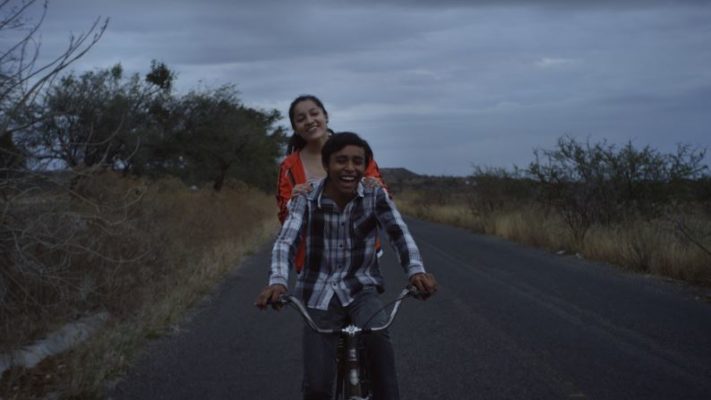
It’s like the new version of the Wild West in Mexico, but not on horseback, and at great risk to themselves.
EN: There was a sad incident two months ago where more than 100 people died in a gasoline leak that exploded and got burned. It’s kind of…I’m having mixed feelings. It’s a really a sad situation that we are [experiencing] in Mexico. But it’s not a coincidence that we [are making] this movie at the same time. I feel like all the facts that happen in society have different lines and waves and art is one of them.
Let’s talk about the huachicoleros themselves and the Robin Hood elements of them.
EN: I am a big fan of the corrido music. Most of them are about drug traffickers and you can realize in the lyrics that they always have this thinking about: “I prefer to live five years as a rich guy, than the whole life as a poor guy.”
That is like the first motivation and, at the same time, you see that people are disappointed with the government because Mexico is not changing for the better but instead seemingly always for the worse. It’s logical that little kids are in these kinds of situations and can get an easy way to make money. That’s why we made it like that—not exactly like a Robin Hood thinking but [more practical].
With the parallels of a child that’s becoming corrupted versus the institutionalized corruption that happens throughout the government and with cartels and police cooperation that happens in the shadows but not so deep shadows.
EN: These types of things happen all days in worse ways than we put in this movie, in Mexico and in the world. A lot of kids die every day because they actually work in organized crime. I read about sicario kids, 11-years-old, and they kill people. I think it has to be because it’s easier to convince a kid with less money to work on something else. That’s why I think there are a lot of kids like our character.
I wanted to ask about the choice to shoot handheld and use natural light?
EN: At first it was a budgetary reason, but in the process we start watching how we were going and how we were getting things, it was going to be our style. Let’s do this in handheld. It was funny because one day as we got this take, and it was really long and I say to (DP) Juan Pablo:
“Let’s put the camera on the tripod and we shake it a little.”
He said, “What tripod man?”
I said, “Come on, we don’t got a tripod to put the camera on?”
“No man. Are we men or are we clowns?”
I said, “Okay, we are men. “
So we don’t bring a tripod to the set. That’s cool. Actually that allows us to work in a really comfortable way. That was how we got the space and we like it, the whole space. Let’s do the characters live in this space as they want to move, don’t put marks. They are free and we are going to go with them, to follow them, to follow them in the space and feel natural. That allowed us to shoot 360. Every place you can see there is not a light in there, there’s nothing. It was…it was cool.
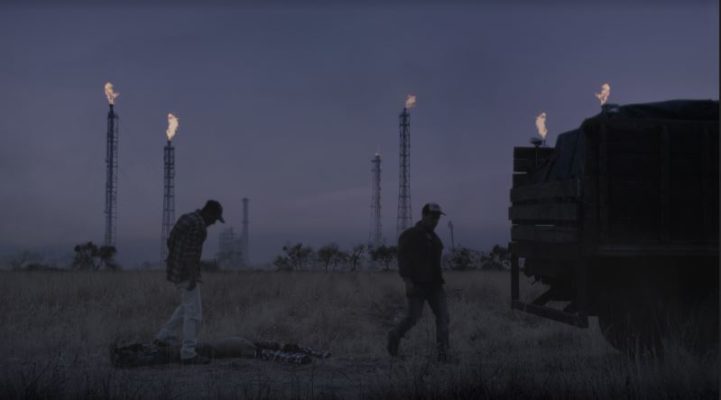
In the United States, they have this saying, “don’t work with the children or with animals.” What was it like trying to find someone at that age? He was 13 when you shot—what was the process like finding the right young actor for that?
EN: We were a little scared. We are going to do this in Irapauto, my hometown, with what we got. And then we are going to do this will all natural actors, not professionals. Let’s go with people from there. That was the beginning of my thinking, but it’s really complicated to get that and we got like one month or less than a month to do the casting. So we didn’t get ready for that. We mixed processes, casting in Mexico City at the same time we were doing it in Irapauto, in some acting schools and inviting some people from streets to see how it’s going to happen.
But in the school of actors where we were casting in Irapauto, Lalo was working on painting the walls with his father, helping him you know. And I asked him, “Man, do you wanna come and do this?”
He didn’t know what casting was but he said yes and it was really funny because he was so natural, What we was looking for. Everything I was saying to him, he reacts so normal that with actors it’s some times really difficult to get that. With Lalo, he took three weeks of acting classes.
From nothing?
EN: From nothing and he never read the script. His parents knew what [the movie] was about, but he only knew a little. He was building in his own mind. His acting training was more about feelings but not scenes specifically.
But he would basically pick it up on the day?
EN: Yeah every time we were shooting a scene, he started building the story in his own mind in every day of shooting. And if you see some of the dialogues he has, he invented them in the place. And the actors, it was more difficult for them. Because they read the script but I said, “Don’t, don’t don’t memorize anything. Have a connection with the kid. Spend a day or two with him. Know him and then we are going to do everything on the set.”
It was a different, another kind of process and I think it was very rich. It allowed us to improvise a lot.
You guys actually ran into the natural sites while shooting. Some of the sites where gasoline is siphoned?
EN: I think we are, I don’t know if we were stupid or really risky guys but if you ask me today if I would do it the same way, I wouldn’t. I wouldn’t do it like that. But at that moment, the situation wasn’t that dangerous as now. At that moment, people know about in the local media, there was some news but there weren’t a lot of deaths like today. Today, every day in this city, at least seven people die. Every day, every day, every day.
In Irapauto?
EN: Yeah, in Irapauto. So now you wouldn’t do this but at that moment I remember actually people saw us and say, “is your movie about the huachicoleros? I want to see it!”
And they wanted to get into the movie. So it was really weird as there was a scene [where] there is a tank at a spot and it’s a friend’s farm. He was so scared cause one week before we [came to] shoot the movie, the bad guys come to him and said, “We need to come to enter into your place and we’re going to enter, so please let us.”
Like do it the easy way or the hard way?
EN: Yeah, yeah totally. He moved his house to the other part of the farm and he cannot do anything, you know? And I’m not sure if [it’s still] like that to this day, if he’s still having these kinds of problems. The other day he told me there was a gunfight between the marines and the huachicoleros in THAT SAME SPOT where we [shot that scene].
Three years ago?
EN: Three years ago. So those kind of things…that’s what we would see.
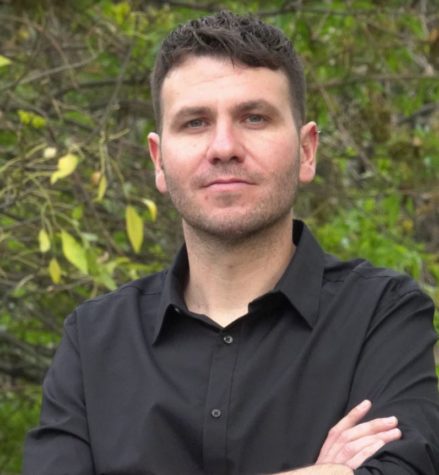
–Justin Leon
Tags: Edgar Nito, Huachicolero, Interviews, The Gasoline Thieves, Tribeca Film Festival

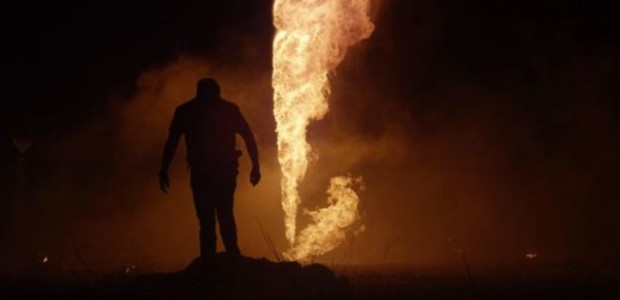
No Comments